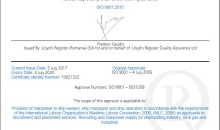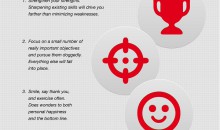Romanian seafarers have the reputation of being some of the best seafarers in the world and one reason for that is their continuous training offered by the Romanian Maritime Centers.
Nedcon Maritime is recruiting for over 15 years the best qualified and trained Romanian seafarers for all types of vessels that are sailing worldwide.
Life at sea it’s not for amateurs, no one can afford to go blind at sea. The seafarers must be prepared for the unexpected.
The shore training doesn’t compare with sea experience, but then again there is no experience without training. For example when dealing with a respiratory failure of one of the crew members, you must know precisely what to do and to do it right. Experience may give only a shorter time of reaction, but the procedure it’s always the same. In order to solve the medical situations the officers and ratings are trained during the “Medical First Aid” and “Medical Care” Courses.
A major aspect of the maritime business is the common fact of the multinational crews. English is the “lingua franca” of the maritime business. On board ships every man has precise duties and responsibilities, orders must be understood and followed, therefore the communication is crucial. Perfect understanding keeps everything rolling at the exact time and the right course as it supposed to.
As a seafarer, you can’t possibly consider your job at sea a selfish one; you’re not the only one with a family back home. The old saying “one for all and all for one” is very well illustrated in a ship crew, because one’s fault can cause major disaster for everybody. Sometimes the crews can face harsh sea conditions, and the survival may not be always easy but the proper training provides the knowledge and the guidance to safe shore.
The people that dedicate their lives to sea navigation are fully aware of the fact that they are responsible for themselves and for the rest of the crew. In order to face all the potential problematic situations, the seafarers prepare themselves to work according to the safety regulations to avoid or to be able to manage all types of incidents that may occur.
There are special courses like “Personal safety and social responsibilities on board ships”, “Proficiency in personal survival technique”, “Proficiency in survival craft and rescue boats other than fast rescue boats” and “Advanced fire fighting”.
Taking into consideration modern technologies, 21st century sailing is quite different than what it used to be few centuries ago. The technological systems that provide all information for reliable, safe and efficient operation of ships require highly qualified personnel that can manage all these systems. The ground simulators offer the possibility of advanced practice before actually sailing. Some of the necessary courses are “Radar navigation, radar plotting and use of ARPA”, “GMDSS-GOC-I – Global Maritime Distress and Safety System – General Operator’s Certificate” and others.
The vessels are much bigger and the technologies used far more complex. For example a Very Large Crude Carrier (VLCC) of over 300.000 DWT or Ultra Large Crude Carrier (ULCC) of over 500.000 DWT can’t be operated as a raft on a calm river in a sunny day. To sail on board tankers there are specific courses, the “Tanker Familiarization” and in addition the specialization for each type of tankers: “Specialized training for chemical tankers”, “Specialized training for Liquefied Gas Tankers”, “Specialized Training for Oil Tankers”, “Tanker management and self assessment, Transport and handling of dangerous hazardous and harmful cargoes”.
The officers and ratings have a multitude of courses to attend, in modern facilities.
Duration of the courses varies according to the type of the course and the rank of the students. Some of the courses form the basic training and others are specific to the superior level of training.
All the seafarers know that to keep up with the changes in the maritime industries it means that the training never ends.








Leave a Comment